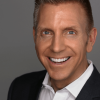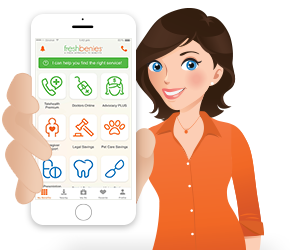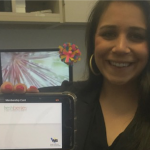Brokers in Cars Getting Coffee: Jeremy Mahoney
In this episode, we are blessed with the positivity and enthusiasm of Jeremy Mahoney. Key insights include:
- What the market will demand from in a post-COVID world.
- Why he’s been an early-adopter on telehealth since he first saw it 11 years ago.
- Now that we’re post-COVID, we need to agree it’s time to embrace technology systems.
Who's the Guest?
Jeremy Mahoney is from Dallas TX and is a Vice President at Risk Strategies. He’s one of those people whose enthusiastic attitude enters a room before he does. He has a smile and an encouraging word for anyone. If you know Jeremy even a bit, you’ll know his faith and his love for his wife are at his core. [Hint: if you want an interesting story, ask him what his life used to be like, and what turned him around. He’ll tell you.]
We used to work together at the General Agency, BenefitMall. While there, Jeremy was among the top few sales reps in the country multiple times. If you ask him about his ambition and aggressiveness, he’ll tell you his focus is to consistently do the best he possibly can for people and the sales will sort themselves out (the book, The Go-Giver, describes the way he lives). His success would prove the sincerity of his approach.
The Setting
This was filmed on a hot morning in May 2020. Social distancing due to Coronavirus was just ramping up. We skipped the car ride and settled in with a couple of iced coffees on Jeremy’s patio (after scrubbing it down – as proven in the video).
The Episode
Brokers are smart and they have a lot to say. My favorite comedian inspired me to capture broker insights in a fun way to share with you. With that, we created Brokers In Cars Getting Coffee. Sometimes we’re in cars. Most of the time there’ll be coffee. But we always have great insights about the employee benefits industry!
The Cutting Room Floor
Some wisdom was (sadly) left on the cutting room floor. But I couldn't leave these nuggets there...
Have an industry focus
Ask Jeremy and he’ll tell you his target clients are “architects & engineers.” Focusing on an industry makes him a more well-rounded consultant for his clients. He knows industry benchmarks, issues, needs, and standards.
“When I sit down with the head of an architectural firm, I can honestly say, 'I know what your counterparts are doing, because they’re probably our clients.' I’m not going to tell them exactly what XYZ company is doing, but I can use that industry expertise to guide them along the decision-making process. And they really want that advice, because the talent-pool that they’re drawing from is the same.”
Be curious during your Discovery Conversation
I asked Jeremy about how he approaches his prospect Discovery Conversation; specifically, whether he goes in with a number of specific tools he has in mind from the start. I was surprised with his response: “Yes, however, I never start with presumption that there are problems. And I’ll tell the employer, 'Let’s start by assuming everything is great. And if it turns out my recommendations are to keep what you have, then I’ll say so.'"
Now, he’s been at this long enough to know that there are probably some pieces missing, and he listens for those. But he checks his ego at the door and goes in with a true curiosity to learn about the employer’s business, their benefits, and their specific needs.
Stop “mailing it in”
When Jeremy worked as a general agency rep, he visited with thousands of agents. I asked him his opinion of competition amongst small and mid-sized brokers. His answer started by looking back a bit, “We’re now 10 years into Healthcare Reform. It changed everything. It changed far more than Coronavirus. But the problem with so many brokers is that their strategies don’t look a whole lot different than before the ACA."
To his point, many brokers will create a spreadsheet, give the client five options, ask them to make a choice, and they’ll install it. Too many brokers aren’t doing real consulting: advising on the market, helping set a 3-5 year plan, or push for tools that can strategically subsidize & support the medical plan. “Employers need true advisors.”
What are your favorite ideas from the interview? Who else you think I should interview? Email me at reid@freshbenies.com.















